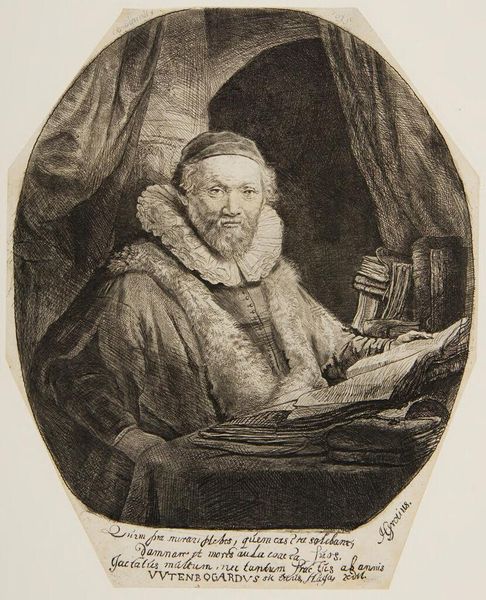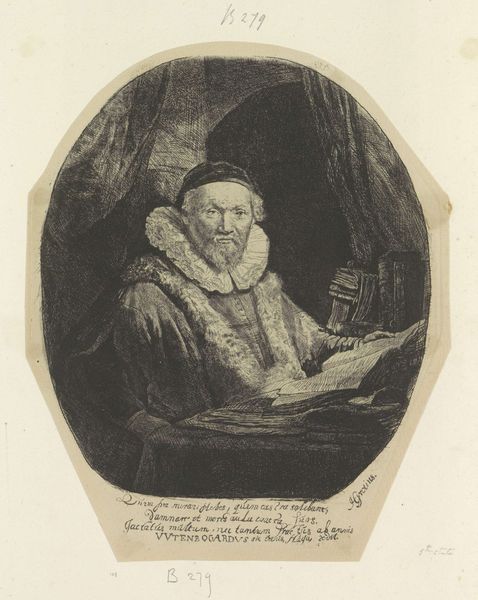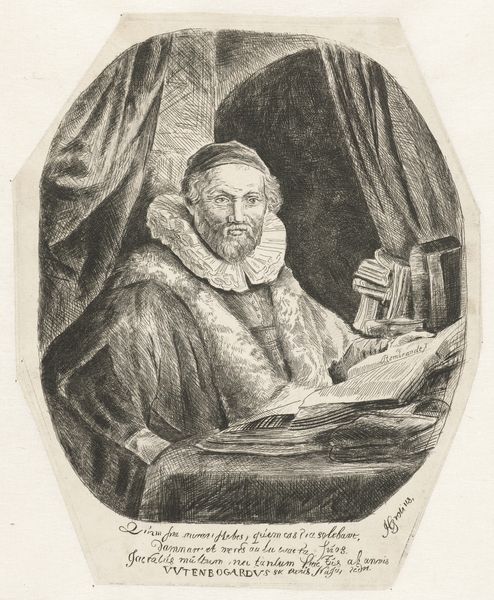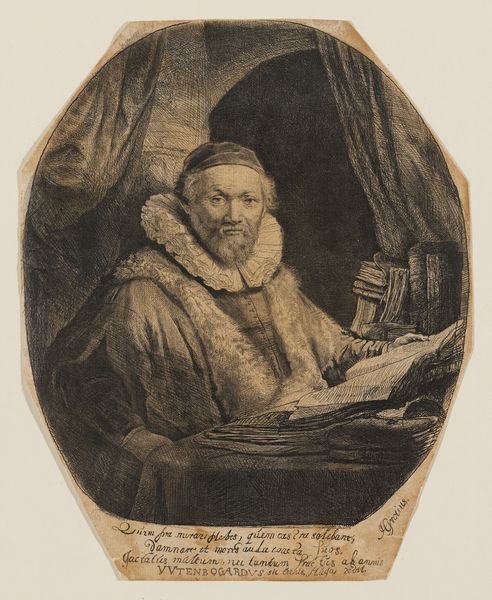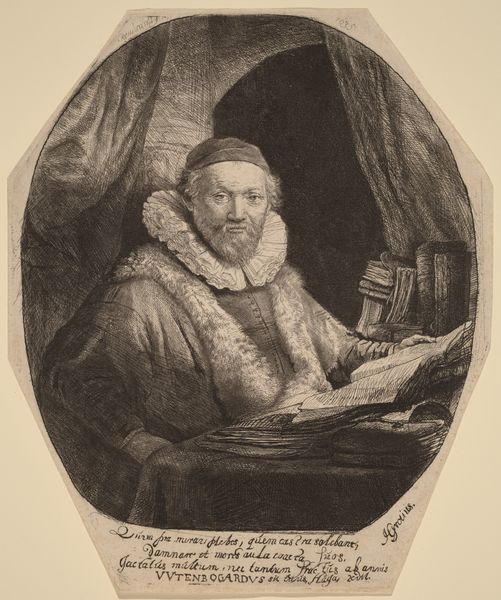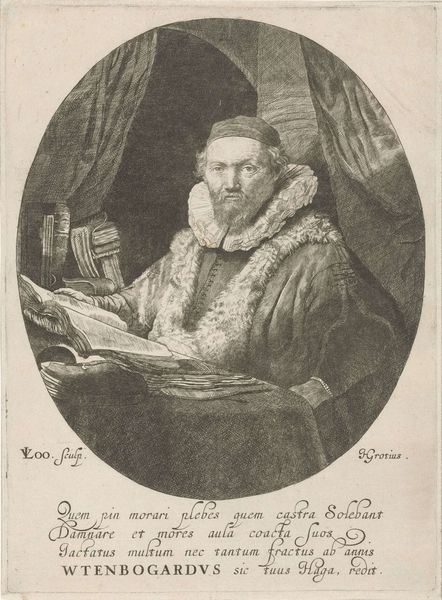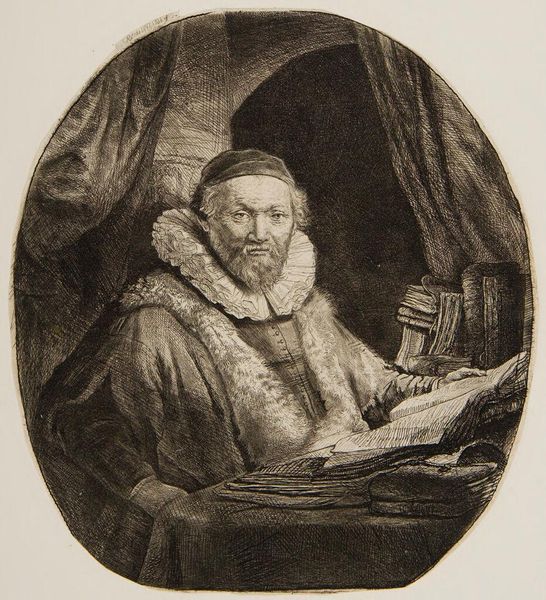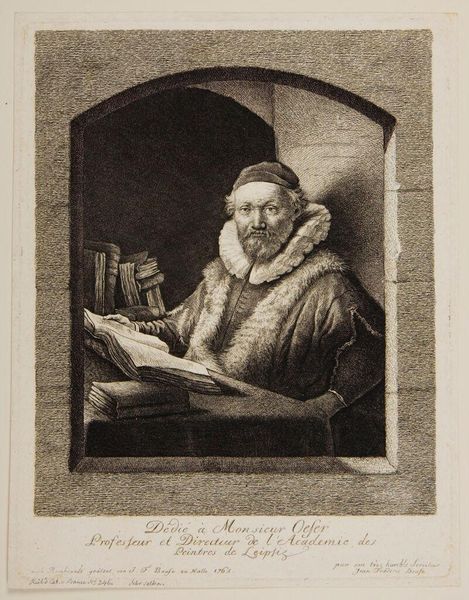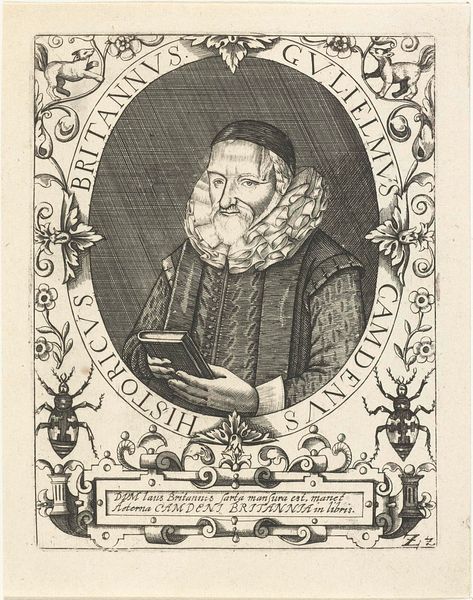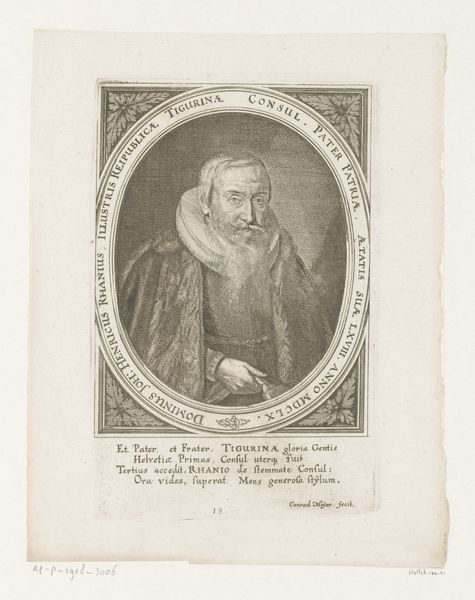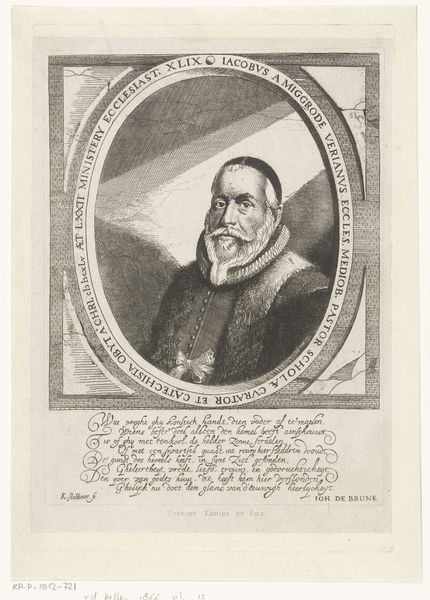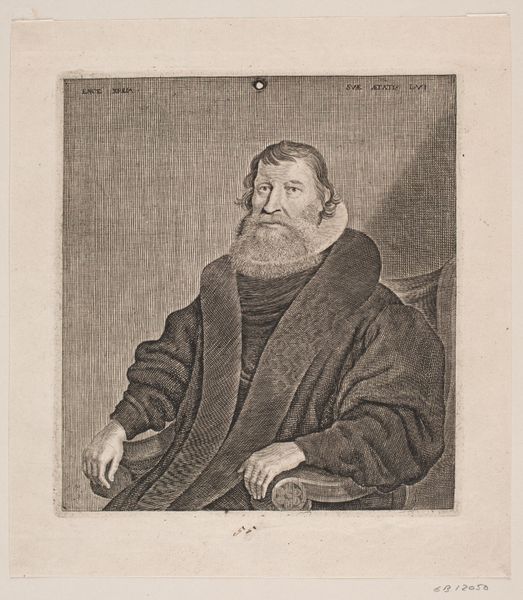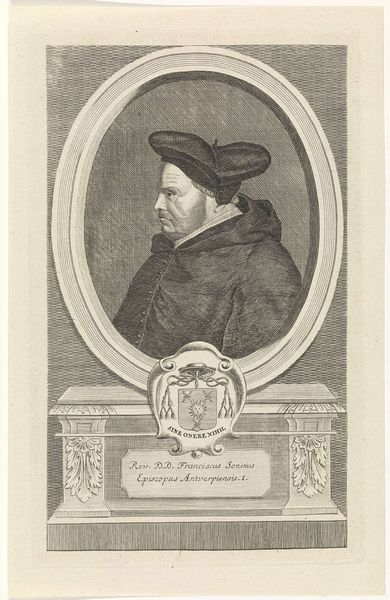
print, etching, graphite
#
portrait
#
pencil drawn
#
baroque
# print
#
etching
#
charcoal drawing
#
pencil drawing
#
graphite
#
genre-painting
#
graphite
Dimensions: height 223 mm, width 187 mm
Copyright: Rijks Museum: Open Domain
Rembrandt van Rijn created this image of Jan Uytenbogaert, a preacher of the Remonstrants, using etching. This process involves coating a metal plate with wax, then drawing through the wax to expose the metal. The plate is then immersed in acid, which bites into the exposed lines. The resulting plate is inked, and then used to print the image. In this print, Rembrandt coaxes a remarkable range of tones from simple lines, using a variety of hatching techniques to give the impression of depth and volume. The relatively small scale of the print would have allowed it to be widely disseminated and collected. Etching was a relatively new technology in Rembrandt’s time, and he was one of its great masters. The fact that Rembrandt chose to use this relatively accessible medium to portray Uytenbogaert, speaks to the shifting nature of religious and political life in the Dutch Golden Age, and the wider distribution of ideas. Materials, making, and context are crucial to understanding the full meaning of the artwork.
Comments
No comments
Be the first to comment and join the conversation on the ultimate creative platform.
